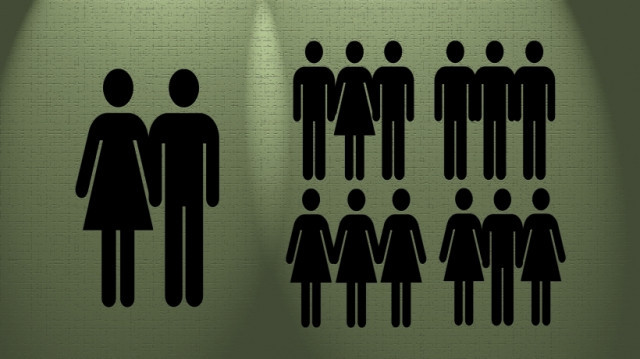Facility With Self
The title of this piece is one of my favorite ways to sum up what I think is the ultimate capacity and the most valuable skill set in life is. It is also access to being emotionally free, flexible, and generally more happy, regardless of your circumstances.
This is also where I remind you that communication skills - and in this case, you are communicating with yourself - are physical skills. They are awkward at first. They take practice to become proficient in. They take repetition to master.
Gaining Facility With Self is the most challenging and most rewarding guiding principle - as well as a set of capacities - to take on. In addition, I assert that there is nothing in life external to one’s self that cannot be managed, overcome, conquered by having greater Facility with Self.
Many of you have asked me what this thing is. What are its component parts? This is complicated and the answer has been long coming, but this piece is written for the purpose of providing as complete an answer I can muster at my current level of insight and writing ability.
I trust you will read it generously, knowing that some aspects of the distinctions are beyond these two elements currently - and must be demonstrated and/or experienced as they involve navigating our interiors.
Let me say that none of what I write here is the “truth”; I am not even interested in debating its accuracy—while I think I could. What I am asking you to do is try it on for the purpose of your own personal evolution. Not what is true but what is useful for that outcome and for the outcome of your own happiness via developing ultimate choice with your own emotional and mental experience.
Necessary Operating Assumptions
Most people are not even aware of their operating assumptions. You could also call these beliefs, filters, and presuppositions. One of the necessary first steps to Facility With Self is to acknowledge and take responsibility for the fact that we all have operating assumptions, beliefs, and filters. Most people operate as of the are their “truth”s. Most of them are sweeping generalizations created from moments when they assessed something in their experience and extrapolated from it—often inaccurately. Judgment—a necessary skill for survival—gone awry. Most people have assumptions that do not serve them. For example people are out for themselves; I can not control my emotions; men are a certain way and women are a certain way and that’s that; a leopard can not change its spots, etc.
Anyway, I consider the necessary assumptions | beliefs | filters for Facility with Self to be (at least) the following:
- Taking responsibility or owning my part is the fastest way to build a healthy sense of self
- I have assumptions—they are under my control
- Some (most?) of my filters are out of my awareness; it is possible to bring them into my awareness by paying attention to my subjective experience and my language patterns
- I am 100% responsible for my emotional experience—it is under control if I develop the necessary capacities said another way:
- My subjective experience (emotional life) of the world is completely generated by me and is the result of my interpretations, beliefs, perceptions, preconceived notions, distortions, etc.
- There is always a way - and always an ethical way
- Flexibility and variation of approach toward a specified outcome—focus on results and my effectiveness towards such—will provide optimal probabilities of achieving that outcome; a fixed approach leads to less than optimal results
- I have no inner enemies; I have parts—who are sometimes in conflict, but who have positive purposes. These parts can be honored, understood fully, and integrated to resolve the internal conflict contributing to my congruity with my espoused values.
These items can also be summed up as “attitudes”.
Necessary Skills (imitating the Buddha)
Once the necessary attitudes are in place as operating presuppositions, there are some skills that come into play. The first is some agility in the ability to occupy multiple perceptual positions or to experience the world in “triple description”. Some people have asserted that the ability to move through all three perceptual positions - at will - to be a good operating definition of mental health.
Additionally, the evidence, as well as the practice of Personal Evolution, is the ability to take on an ever-increasing number of perspectives. but without these foundational three, you will not have any facility at all.
What are these perceptual positions? At least the first three:
- Self: being in your own body. Seeing out of your own eyes. Knowing what you want.
- Other: walking in someone else’s shoes. Seeing the world through their eyes with their filters—feeling into them; empathy
- Observer: the position of director of a play or an interested third party who is observing.
It is important to remember that these are holarchically arranged. They are also known as First, Second, and Third, respectively. Holarchy? For example, paragraphs contain sentences, but not the reverse. Sentences contain words, but not the reverse. Words contain letters, but not the reverse. In the same way, Second - a second position shift - requires first, but not the other way around. Third A third perceptual shift requires the ability to occupy both first, then second, and then take the perspective of third. It could be said that this is simply a shift in attention. The ability to project your awareness or your consciousness to a space and then perceive the world from a different angle is the beginning of the acquisition of this skill. For instance, what does your head look like from the back? Pretend the floor you are sitting on is plexiglass—what do you look like from beneath? Etc. Why is this a critical skill? […]
"Going Meta"
Going meta to your experience and acquiring what is commonly referred to as “meta-cognition” is the ability to have not only awareness but choice over your own thought processes. This is what Buddha’s vipassana meditation technique teaches. It is a skill and this skill holds the promise of allowing you to liberate yourself from the emotional roller-coasters - the vicissitudes - of life.
Once you can see the process is of your own making, and then master it, you will be truly free.
An event happens and then ⟹ you interpret it in a certain way, which leads to ⟹ your emotional reaction, and in that reaction, ⟹ you then make it mean something (your generalize) - often creating a limiting belief - which then ⟹ leads to an emotional atmosphere.
Most people think this is a one-step process: Something happens and then ⟹ they feel bad.
And most humans then blame the other person or external circumstances for the feeling. And in the process of blaming - lose all of their power.
This is why the most fundamental orientation to all of your experience is one of 100% responsibility - it is your access to choice and power.


